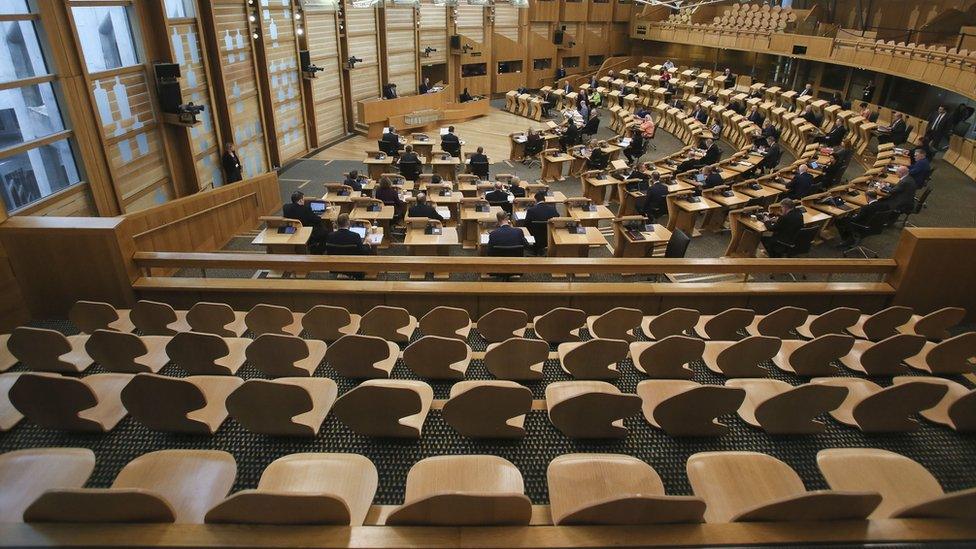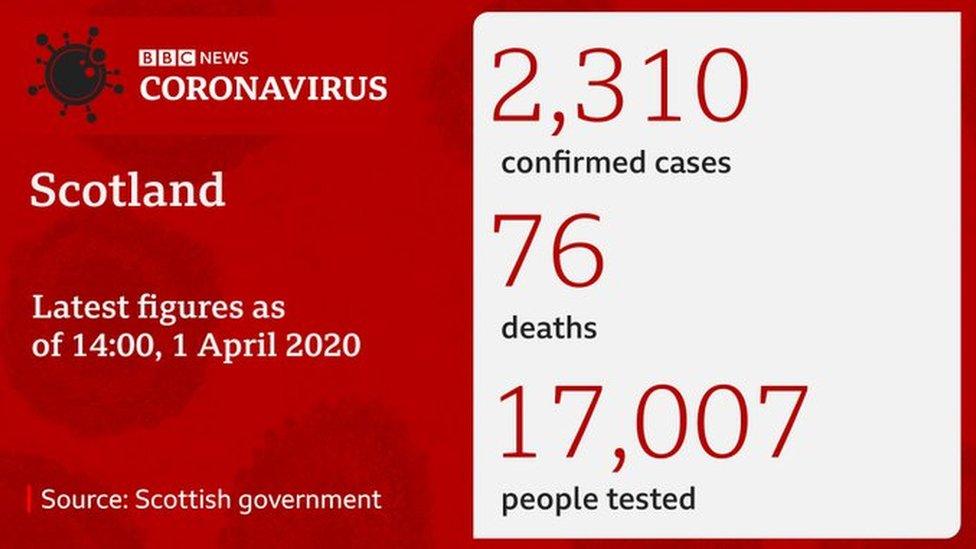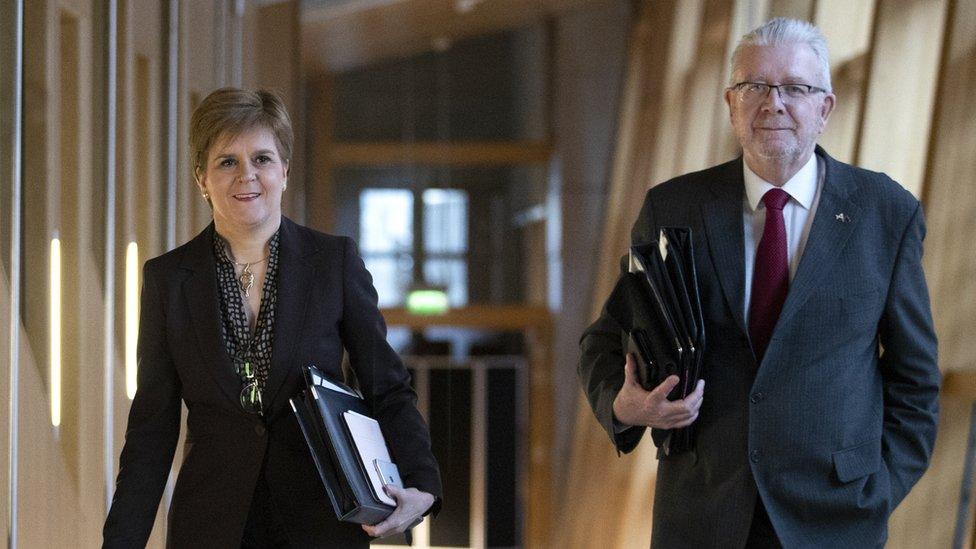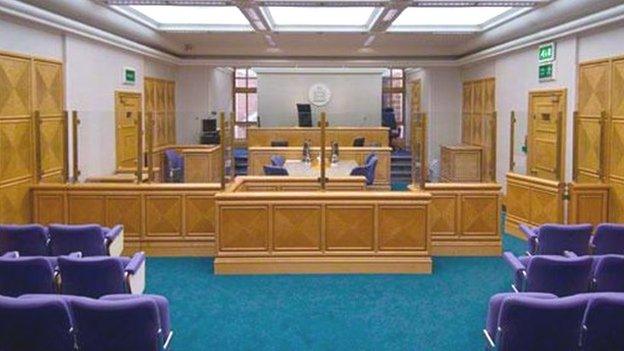Coronavirus: MSPs pass emergency powers bill
- Published

MSPs have been meeting in a near-empty chamber on increasingly infrequent occasions
MSPs have voted to give the Scottish government emergency powers to deal with the coronavirus crisis.
Ministers agreed to drop controversial plans to hold more trials without juries during the virus lockdown.
But other measures to keep the judicial system running and to protect tenants from being evicted have been passed as part of the emergency legislation.
The government said the new powers would be used "exceptionally carefully" and would expire after six months.
More emergency legislation is to be considered at Holyrood later in the month, but MSPs are not expected to meet again for two weeks as the parliament has gone into recess.
The Coronavirus (Scotland) Bill sets out new rules to prevent tenants from being evicted and to keep the judicial system running during the lockdown.
The bill passed through the full legislative process at Holyrood in a single day, with fewer MSPs than usual present during the debate in order to maintain social distancing.

The legislation is designed to work alongside the emergency bill passed at Westminster last week, which MSPs gave their consent to and which underpins new police powers to enforce the lockdown.
It introduces new rules in specific devolved areas, focused mainly on housing and justice.
These include:
moves to protect tenants from eviction by increasing notice periods to six months
an overhaul of the justice system, allowing anyone to participate in court hearings by video or audio link
provision for the early release of some prisoners from jails if staff levels fall dangerously low
relaxed rules for local authorities, including longer deadlines for planning and licensing decisions
Mr Russell said that "we are in an emergency and these are emergency powers that are necessary to allow us to concentrate on the absolute priority of dealing with the pandemic".
There is to be a strict time limit on the new powers, which will initially be in force for six months.
MSPs will have the opportunity to extend this by a further six months on two occasions, to a maximum period of 18 months overall. Ministers have also pledged to report back to Holyrood on the use of the powers every two months,

Constitution Secretary Mike Russell said there were "many safeguards" on the new powers
The bill originally included measures to allow more trials of serious crimes to be heard entirely by judges, with jury trials having been suspended for the duration of the lockdown.
This provision is not mirrored in England and Wales, where such trials are simply on hold, and prompted opposition from lawyers and other political parties.
Ministers said this might be needed to prevent a backlog of "the most serious cases" building up, and that this would only happen subject to further parliamentary scrutiny - but the Tories said trial by jury was "an important safeguard of human rights which we would be most reluctant to see removed".
The Scottish Criminal Bar Association hit out the "draconian" move, saying it would be "at best a knee-jerk reaction to an as-yet unquantified problem, instigated by panic, and at worst something far more sinister".
However Scotland's most senior judge, Lord Carloway, said, external delays to serious cases were "likely to stretch into years rather than months" if no action was taken, with a backlog of more than 1,000 trials building up even if restrictions were lifted by the start of summer.
And Victim Support Scotland backed the move "to prevent victims of serious crime waiting even longer for their cases to be heard".

Lord Carloway warned that a backlog of more than 1,000 trials could build up by early summer
At the beginning of Wednesday's debate, Mr Russell confirmed that the part of the bill relating to trials would be deleted "in order to allow a wide-ranging discussion by all interested parties".
He said the government would bring back another emergency bill, on 21 April, to re-examine the issue to make sure that courts can continue to function.
Mr Yousaf said he would immediately begin discussions with the judiciary, legal profession, victims of crime and opposition parties to find a "practical, achievable" solution.
Ministers also agreed to strip back an extension on the time public bodies have to respond to Freedom of Information requests, saying this should be used in a "targeted way" and will not apply to the government itself.
Opposition parties all wanted to go further than this, but saw many votes come back tied - meaning the amendments fell on the presiding officer's casting vote.
Attempts by the Greens to strengthen protections for tenants were also rejected, with Housing Minister Kevin Stewart warning against making complex changes to the legislation which could potentially delay it becoming law.